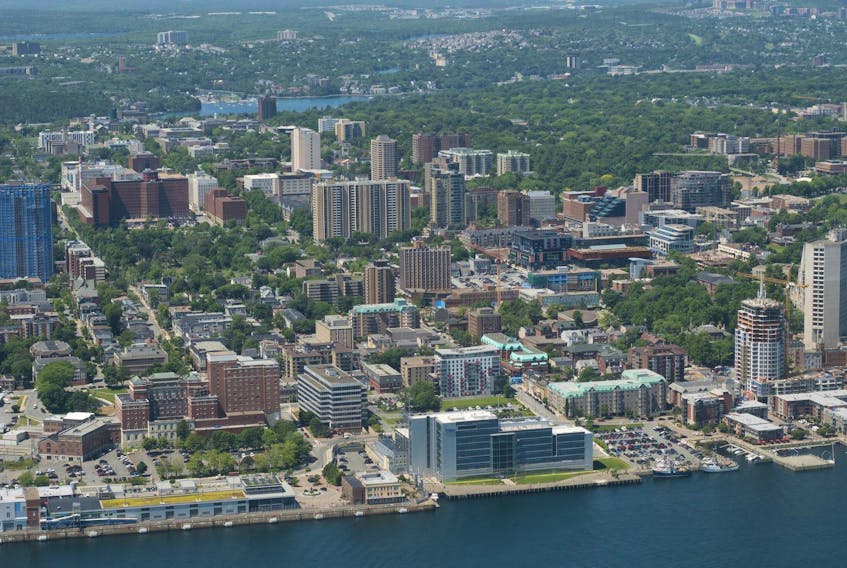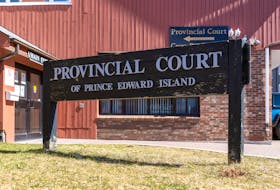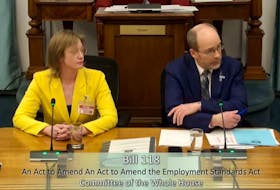Regional council gave final approval Tuesday to a $793.71-million operating budget and $163 million in capital spending for Halifax Regional Municipality.
The result is a 2.3 per cent hike in the average residential tax bill for 2019-20, an additional $42.85 on a property assessed at $241,000. That would bring the average residential tax bill to $1,967.
“Halifax Regional Municipality is actually Atlantic Canada’s leading municipality in relation to economic growth and population growth,” Jacques Dube, the municipality’s chief administrative officer, said in introducing the final budget documents.
“That hasn’t happened by chance. While there are many factors contributing to our economic strength … many years of fiscal discipline exercised by regional council has set us on a course to support the exceptional growth in our communities going forward. Being challenged by growth pressures is actually better than the alternative.”
Dube said as the municipality grows, the demand for infrastructure, amenities and services for residents grows along with it.
“This budget is meeting many of your priorities,” Dube said. “Several of those highlights include bridge and street improvements, an enhanced fire presence in Fall River and potential bus replacements, rural transit funding, transit priority measures, active transportation projects.”
Coun. Matt Whitman (Hammonds Plains-St. Margaret’s), one of two councillors to vote against the budget in committee of the whole deliberations, didn’t agree with Dube’s assessment.
“I looked at this with an open mind and I made my decision based on what is most important to most taxpayers,” Whitman said. “I look at some of the items, including a $3-million score clock (Scotiabank Centre), another million dollars for WIFI (buses), a potential $80 million for a police station, $50 million for the (Halifax) Forum, the St. Andrew’s Community Centre that is going from $6 million initially, to 11 to 12 and I think it will get to 15 in the end.
“I just don’t share the vision for an $80-million police Taj Mahal. I thought we had talked around the table about spending more money on more projects, spreading the money around.”
Whitman also bemoaned that there are no dollars set aside for a regional museum.
“No funding in sight for that although that’s something that has been expressed as very important to all of us, honouring the heritage and history of Halifax.”
Dube also pointed to the municipality’s “healthy reserves.”
“Even though this is April 16, we still may get snow tomorrow,” Dube said. “There are a lot of unpredictable things around here, snow being one of them, and our reserves put us in a place where we can meet exceptional circumstances.”
Reserve balances are expected to sit at $105.1 million at the end of the fiscal year, March 31, 2020,
The unwillingness to turn surplus money over to reduce the tax bill even further is what convinced Coun. Tim Outhit (Bedford-Wentworth) to vote against the budget.
At a budget meeting in late March, Mayor Mike Savage made a pitch to hold the tax bill increase to 2.1 per cent by spending about $900,000 of the municipality’s remaining $8.5-million surplus after additional capital expenditures.
That motion did not pass.
“I cannot philosophically support not even using a small portion of the surplus to provide a dividend to the folks that helped us get there (taxpayers),” Outhit said at Tuesday’s meeting. “I just don’t think that I can support something that I just don’t think is right. This is my 11th budget and we still haven’t done anything for small business.”
While tax bills will rise for both residential and commercial taxpayers by 2.3 per cent from last year, the residential tax rate actually falls by 0.3 per cent. When the 2.6 per cent increase in property assessments, administrated by the province, are factored in, tax bills do increase.
The general rates of taxation on residential properties in the municipality have been set at 67 cents per $100 of assessment in urban areas and 63.7 cents for suburban and rural properties.
The general commercial tax rates have been set at $2.988 for urban and suburban areas and $2.647 for rural properties.
There are additional tax rates for the Halifax Transit annual service plan, fire protection, and provincial area rates for education, property valuation services, corrections services and the metro regional housing authority.
The municipality continues to tackle its debt, which should be as low as $236 million in 2019-20. In the past 20 years, overall debt has been reduced by more than $100 million.
Final tax bills will be due on Oct. 31..
RELATED:









